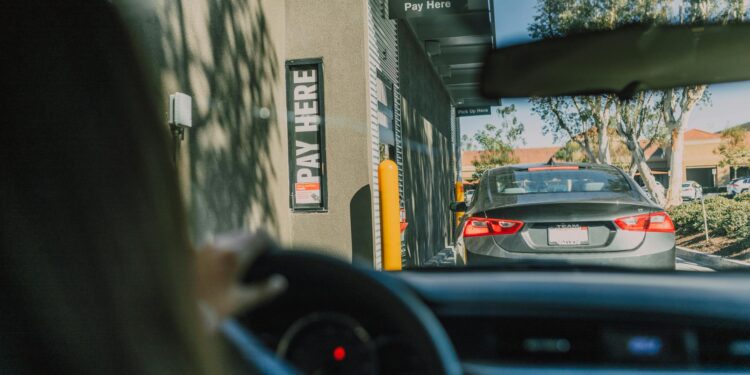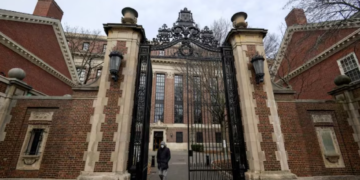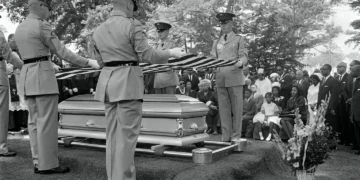Dec 21, 2024 Story by: Publisher
DADEVILLE, Ala. (AP) — With a storm brewing, Jake Jones, an inmate serving a 20-year sentence for armed robbery, was tasked with driving fellow prisoners to their jobs at private manufacturers supplying companies like Home Depot and Wayfair. Despite a history of escape and failed drug and alcohol tests, Jones was unsupervised and effectively in charge.
On the return trip to the work release center, heavy rain began to fall. Known for driving recklessly, Jones was reportedly speeding along the country road while listening to music through earbuds. The van struck a dip, lost control on the slick pavement, and crashed into a tree.
Two passengers were ejected and killed, while Jones, critically injured and slumped over the horn, had to be extricated. Survivors, who flagged down help in the storm, questioned why Jones had been trusted with such responsibility. “They knew he had a propensity to drink,” said crash survivor Shawn Wasden. “And they put him behind the wheel of a van anyway.”
A System Built on Prison Labor
Alabama has a long and controversial history of profiting from prison labor. From the convict leasing era to the present, it has refined a system of commercialization within its overcrowded and violent prisons. Over 500 businesses, including Best Western, Bama Budweiser, and Burger King, have leased prison labor in the past five years, generating over $250 million since 2000.
Inmates, many of whom are disproportionately Black, are often compelled to work in grueling conditions. More than 10,000 prisoners have logged 17 million hours outside prison walls since 2018, doing everything from manufacturing car parts to staffing distribution centers for retailers like Walmart. Refusing work can result in severe penalties, including being denied family visits or transferred to higher-security, more dangerous facilities.
While some prisoners earn $7.25 an hour, the state deducts 40% of their wages, along with additional fees such as $5 daily for transportation and $15 monthly for laundry. Turning down work also risks parole eligibility; last year, Alabama granted parole to just 8% of eligible inmates, though public pressure has since doubled that rate. “It is a symptom of a completely, utterly broken system,” said Alabama lawmaker Chris England, a vocal advocate for criminal justice reform.
Exploitation and Limited Oversight
Many inmates work 40-hour weeks and receive weekend passes with no supervision or monitoring. Yet, they are still deemed too dangerous for release, raising concerns of exploitation. “It looks like another way to create a cheap labor force that is easily exploited and abused,” England added.
Arthur Ptomey, a current inmate, experienced this firsthand. Denied parole after losing his job at KFC for complaining about low wages, he joined a class-action lawsuit against the state and various corporations. The lawsuit argues that prison labor perpetuates a “modern-day form of slavery” and denies workers their basic rights. “For a lot of these jobs, the attitude is the same… if you don’t meet our expectations, we’ll just call for somebody else,” Ptomey said. “I’m grateful to come out and work, but I ain’t come in here to be a slave.”
Corrections department spokesperson Kelly Betts defended the program, citing its role in helping inmates prepare for life after prison. However, even prisoners serving life sentences are eligible for work release, with eligibility based on behavior rather than the severity of their crimes. Betts emphasized that participation is voluntary, stating, “In many cases, it is a matter of quality of life.”
Tragic Outcomes and Minimal Accountability
Alabama’s prisons are understaffed, often leaving prisoners working outside facilities without oversight. This lack of supervision has led to escapes and fatal accidents. Jake Jones, for example, was allowed to drive despite failing multiple drug tests and having a history of escape. Blood tests following the crash have not been disclosed, and the case remains under investigation. Jones “met all the criteria to be an inmate driver,” Betts noted, adding that his escape was more than 10 years ago, meeting the eligibility guidelines.
Survivors of the crash, now released, still pass the site marked by a simple cross with the hat of one victim, Willie Crayton, resting on top.“One dies, get another,” remarked a prisoner advocate, summarizing the harsh reality of Alabama’s prison labor system.
Prison labor, legalized under the 13th Amendment’s exception for incarcerated individuals, continues to draw criticism for its exploitative nature. Advocates are pushing for fair wages, workplace rights, and voluntary participation to address systemic injustices in this long-standing practice. Source: AP News

















